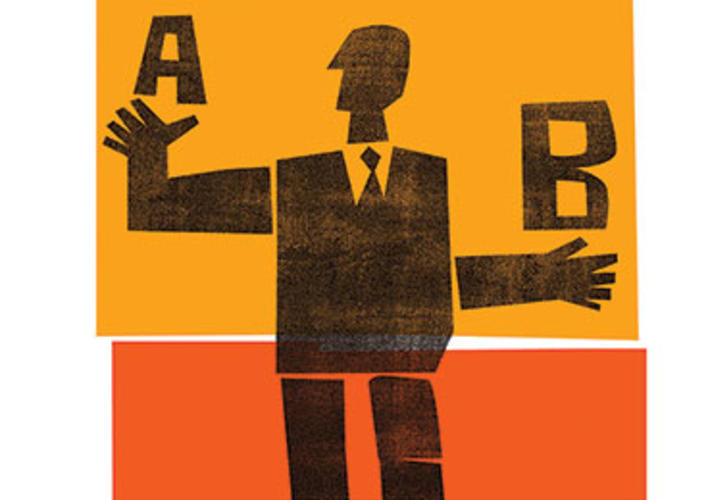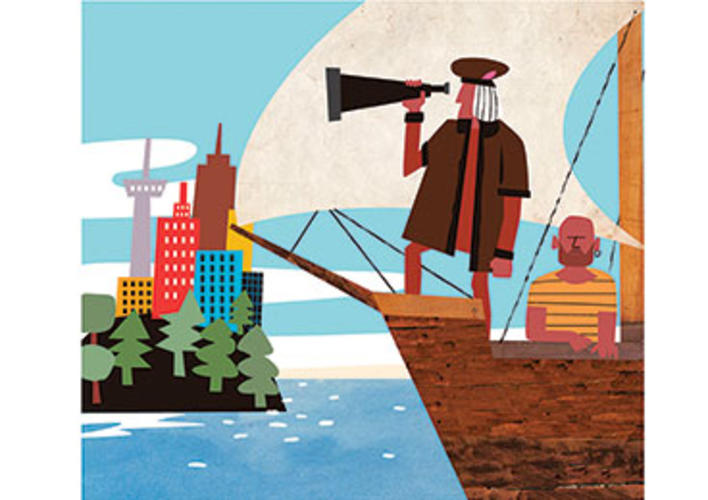
Recently, Weber has dedicated much of her research to examining the psychological impulses behind our decisions to invest — or not — in sustainability efforts, individually and collectively. “A lot of the communication about climate change is gloom and doom, trying to scare or guilt people into doing something. And nobody wants to feel scared or guilty for long. But most of us don’t really want to destroy the planet,” Weber explains. Her research, she says, is “designed to help people achieve what, deep down, if they thought about it more carefully, they would want to do.
Weber’s Studies: A Sampling
ANATOMY OF CHOICE In decision-making, humans weigh option A, then B, before selecting the more beneficial option. But our choices aren’t always logical. When you think about the arguments for the first option, “you temporarily inhibit all arguments for all other options,” says Weber, who documented this phenomenon in a 2007 paper on query theory. “When you turn to the other options a split-second later, those options have a harder time coming up to the surface because you just suppressed them. So whatever option we consider first has a sizable advantage.”For more people to buy hybrid or electric cars, for example, Weber says we must stress the advantages of those vehicles first and not compare them with gasoline-powered cars, which have long been the default “option A.”
LEADING WITH LEGACY Environmentalists are charged with engendering concern for future generations. Weber says her research suggests trying “to remind people that they’re going to die.”
In 2014, Weber and her team asked study participants to write brief essays on different topics before deciding whether — and how much — to donate to an environmental nonprofit. The questions ranged from probing shopping habits to asking how they would like to be remembered. Those who wrote about their legacies routinely gave more money to that nonprofit. “[These motivations] help people overcome their usual focus on the here-and-now,” Weber says.
PAST BECOMES FUTURE In 2013, Weber’s team studied two groups of Americans. The first was shown a historical timeline beginning with the Roman Empire, with little attention dedicated to the United States. The second group’s timeline began with Christopher Columbus setting sail, and the role of America was much larger. The second group perceived the United States to be a much older country and donated more money to a U.S. environmental nonprofit. “If you think the past has been long and good, then you think the future will be longer and better” and you will be more likely to donate your money to preserve it, Weber says.














No responses yet